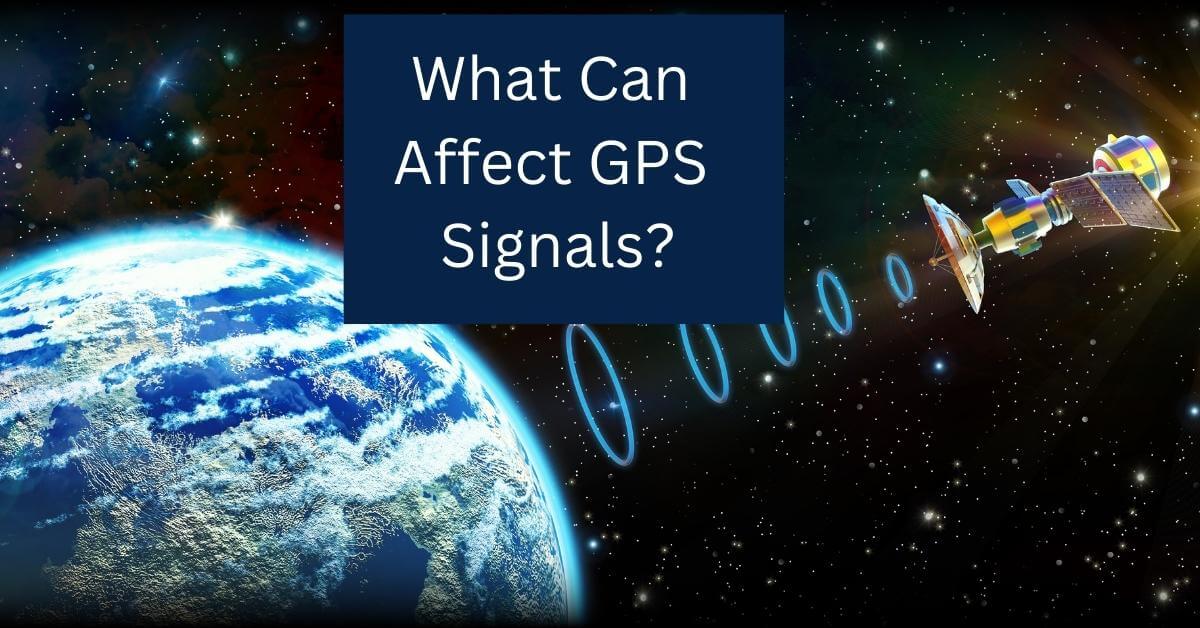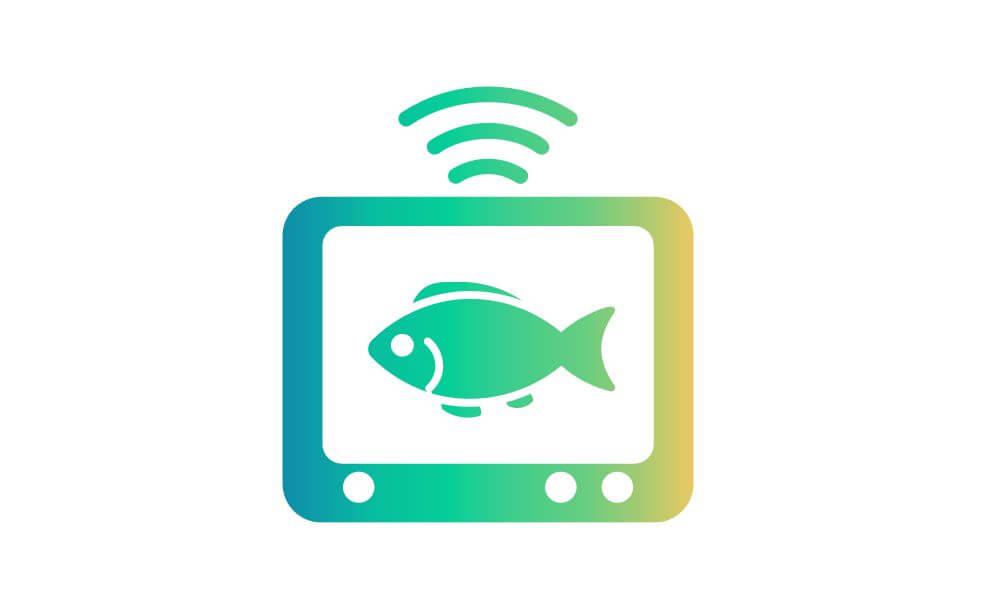We use GPS technology on a daily basis in our phones and navigational devices. It has become an essential part of our everyday lives as it provides us with highly accurate locational information. It makes it easy for us to know where we are and how we can get to our destination. In all honesty, we’re probably all guilty of taking this amazing technology for granted.
Have you ever wondered what happens if things can go wrong with the technology and, if so, what can affect GPS signals?
What Factors Can Affect GPS?
GPS signals and GPS accuracy can be affected by a variety of factors, both natural and man-made. Some of the most common causes of GPS interference are:
- Ionosphere and space weather (channel Interference)
- Troposphere and weather conditions (rain, thunderstorms etc.)
- Multipath and reflections from various surfaces
- Interferences from other radio frequencies
- Intentional interferences because of jamming and/or spoofing
GPS signals travel huge distances. These signals are transmitted from satellites that orbit our planet. These signals are extremely low powered signals (measuring only around 160 dBm), and this may make them somewhat susceptible to interference from various sources. In this article, we’ll explore the reasons for GPS signal interruptions and how this can affect positional, navigational and timing information.
What Can Affect GPS Signals
The GPS signals emanating from the satellites have to pass through several layers of the earth’s atmosphere before they are able to communicate with your GPS device. It’s because they have to travel these vast distances, and make their way through the different layers of atmosphere, that these GPS signals could become distorted by channel interference.
Good to know! – A channel is a medium through which signal waves pass through.
Signals reaching the surface of the earth also face interference from different types of radio signals and objects in its path. Both rare and denser mediums affect the GPS signals differently, causing different types of interference.
Let’s now examine each factor individually, so we can better understand what affects GPS signals.
Ionosphere Effect on GPS Signals
The ionosphere is a layer of the upper atmosphere that starts approximately 60 – 300 km above the Earth’s surface. This region is filled with charged particles (ions and electrons) that are constantly moving around.
The number of these particles may fluctuate depending on space weather conditions. These fluctuations can cause changes in the ionosphere’s refractive index, which in turn can cause signal delays and interference for GPS signals passing through this region.
Space weather refers to the environmental conditions in space that can potentially affect the performance of navigational satellite systems. These conditions are caused by natural phenomena such as solar flares and coronal mass ejections from the sun.
When these events occur, they release large amounts of energy and particles into space, which can disrupt the ionosphere and cause GPS signal delays and interference.
Troposphere Effect on GPS Satellite Signals
The troposphere is the lower layer of the Earth’s atmosphere. It extends from the Earth’s surface up to an altitude of around 6-20 km. This is the part of the atmosphere where most of the Earth’s weather conditions occur. As you can imagine, there are plenty of clouds, rain, snow, etc. to be found up there!
The troposphere can also affect GPS signals in different ways. For example, rain and snow can cause signal attenuation (reduced signal strength), while clouds can cause signal blockage (up to some extent) or interference.
Weather conditions in the troposphere can also affect GPS signals in some ways. For example, rain and snow can cause signal attenuation (reduced signal strength), while clouds might cause some signal blockage or interference.
Attenuation can often be misunderstood in cases such as these, but it typically means a loss in signal strength. An everyday example could be illustrated with your WiFi connection at home. The closer to your router you are then the stronger the signal will be. As you move away from the router and go into other rooms then, the signal will deteriorate due to the increased distance. The structure of the building, such as the walls and floors will also cause the signal to reduce further.
Multipath Effect on GPS Signals
Multipath is a phenomenon that occurs when GPS signals bounce off reflecting surfaces (such as buildings, trees, etc.) before reaching the receiver. This can cause signal interference and distortion, as well as delay the arrival of the signal. Reception of reflected signals can also cause the receiver to lose track of the satellite it is supposed to be tracking.
Interference From Other Radio Signals
GPS signals can also be interfered with by other radio signals that are operating in the same or nearby frequency bands. For example, mobile phones operating in the 850 MHz or 1.9 GHz bands can cause interference for navigational signals in the L1 frequency band (1575.42 MHz).
Similarly, Wi-Fi networks operating in the 2.4 GHz or 5 GHz bands can also cause interference for GPS signals in the L1 and L2 frequency bands.

Line-of-Sight Obstruction
Line-of-sight (LOS) obstruction is another common form of interference that can affect GPS signals. This occurs when there’s an object between the satellite position and the receiver that is blocking the direct path of the signal.
For example, if you are using a GPS device while inside a building, the walls and ceiling of the building will obstruct the LOS of the GPS signals, which can cause signal attenuation or blockage.
These are some of the most common factors that can affect GPS signals. GPS interference monitoring and its countermeasures is now one of the hottest topics for satellite based navigation scientists. And within the industry, there’s plenty of work going on in this field to mitigate the effects of these factors.
What Happens When GPS Signals are Affected?
So now you have (hopefully!) learned something about the various factors that can influence GPS signals. We can now look at what happens when GPS signals are affected?
These various forms of signal interference can cause these types of issues:
Reduced Signal Strength
If the GPS signals are attenuated by tropospheric conditions or LOS obstruction, it can result in reduced signal strength at the receiver. This can make it more difficult for the receiver to track the satellites and may lead to position errors.
Signal Blockage or Interference
If the GPS signals are blocked or interfered with by jammers, buildings, trees, etc., it can prevent the receiver from tracking the satellite. When the receiver can’t track satellites, it won’t be able to offer navigation solution to the user and hence various applications will stop working such as grid stations, ATMs, ATC etc.
In January 2007, during the US Naval exercises, the technicians accidentally jammed GPS signals and due to this many sectors were severely affected. There were reports of people not able to use their cellphones or even able to withdraw money from ATMs. The air traffic control had to use backup for guiding and navigating the air traffic. In the end, it took them around three days to find out the cause of the mysterious disruption of the service.
This story appears to have emanated from a Coast Guard Officer who spoke at a GPS conference way back in 2007. Despite initial skepticism, the account of the officer was later confirmed by one of their superior officers. The incident was widely reported by the ‘New Statesman’ magazine at the time; however, more recent reports seem to show that although the Navy did jam the GPS signals the impact wasn’t as serious as it was made out.
Did the Navy jam the GPS signals and cause air traffic control, mobile phones and ATMs to stop working correctly? In all honesty, I guess we’re never going to really know the truth as to the full extent of the matter. What we can do however, is understand that certain people or organisations can interfere with GPS signals should they want to. Check out the Voice of San Diego‘s fact checking article on the incident for more information.
Delay in Signal Arrival
If the GPS signals are delayed due to multipath propagation or ionospheric effects, it can cause timing errors and degrade the performance of the GPS receiver. Delays in the signals not only reduce the system accuracy, but it also makes it difficult for the receiver to track the satellite transmitting the signals.
Loss of Satellite Lock
If the GPS signals are lost due to multipath propagation or interference, may cause the receiver to lose track of the satellite it’s supposed to be tracking. This can, unfortunately, then lead to positional errors and poorer performance, and the data received may not be entirely accurate.
Increased Position Errors
All these factors can lead to increased position errors, which can be problematic for lots of different applications that need precise positioning. As an example, we can look at industries that rely on exact locations such as surveying, mapping, navigation, etc.
Sometimes, GPS interference can even result in complete signal loss, which can have serious consequences depending on the application. For example, if GPS is used for the precision landing of an aircraft, a complete signal loss could result in a catastrophic crash.
Final Thoughts
In this article we have looked at what factors might affect the accuracy of GPS signals. There are many reasons for potential GPS signal interference – solar storms, errors in the channel or propagation medium, reflections from surfaces, and even interference from other radio signals.
GPS signals are also susceptible to intentional interference from methods such as jamming and spoofing. These potentially nefarious activities can have serious consequences, particularly if used in a civilian setting. A military commander, however, may take a completely different view when trying to obtain an advantage in a combat zone. Having the ability to spoof your location to the enemy on the ground could offer a serious advantage to any campaign.
Hopefully, you have enjoyed reading this article and found it helpful.



